The Shenzhou XIX mission astronauts landed safely at the Dongfeng Landing Site in North China's Inner Mongolia autonomous region on Wednesday afternoon, wrapping up their six-month orbital journey, as the China Manned Space Agency (CMSA) declared the mission a success.
At 12:17 pm (Beijing Time), the Beijing Aerospace Control Center issued a return command through the ground station, and the orbital capsule of the Shenzhou XIX spaceship separated from the return capsule, which carried the three crew members — mission commander Senior Colonel Cai Xuzhe, Lieutenant Colonel Song Lingdong and Lieutenant Colonel Wang Haoze.
Then the brake engine ignited, and the return capsule separated from the propulsion capsule. The return capsule touched down at 1:08 pm at the Dongfeng Landing Site, located in the middle of the Gobi Desert, after flying more than nine hours on their return journey.
By 2:02 pm, the crew had all left the return capsule. They had spent 183 days in orbit and are all in good health, the CMSA said.
The mission set a world record for the longest single-time extravehicular activities (EVAs), and witnessed two historic milestones, namely, commander Cai fulfilling the most EVA tasks to date in China and the nation's first female flight engineer Wang aboard the Tiangong space station.
Their return was delayed by one day from the original schedule because of weather concerns at the Dongfeng site.
ALSO READ: Shenzhou XX astronauts enter space station
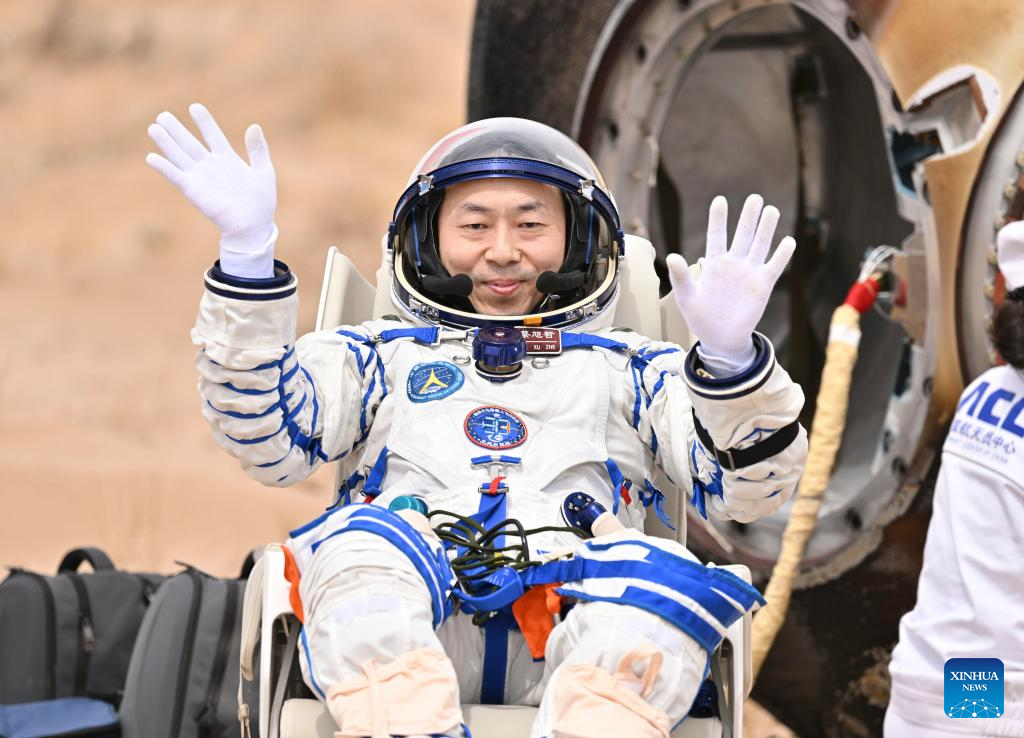
Cai has carried out five EVAs in two spaceflight missions, meaning he has completed more EVAs than any other Chinese astronaut.
"Gazing at the beautiful blue planet countless times in space, I am constantly reminded that this is our shared home, one that we must all work together to protect," said the 48-year-old mission commander, sitting in a chair in front of the capsule.
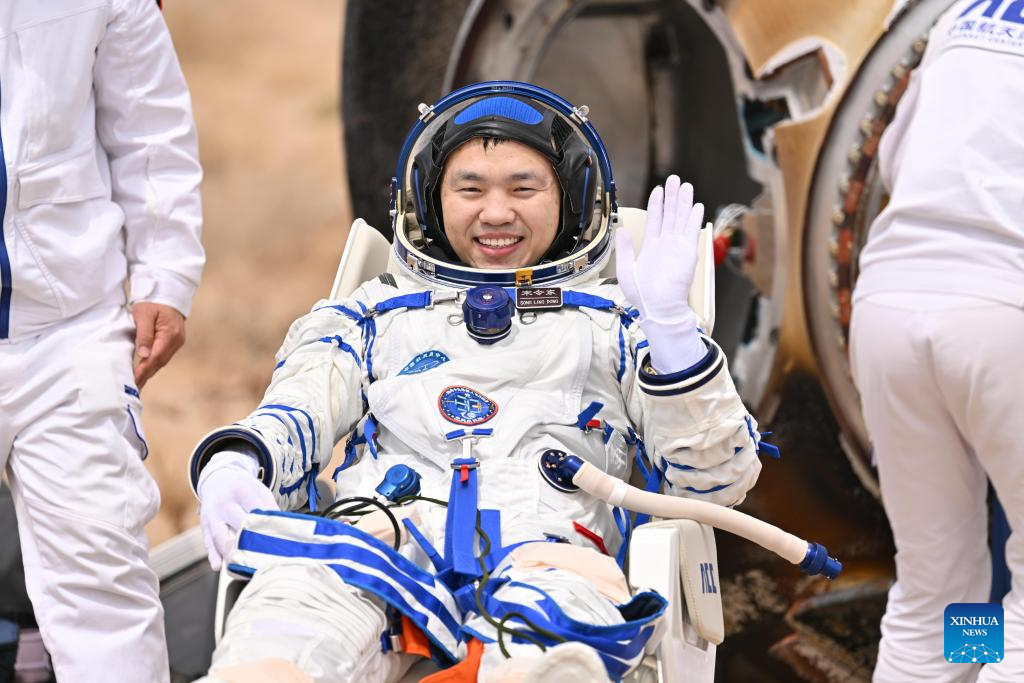
Song is the first post-90s Chinese astronaut to conduct EVAs.
"We have transformed the dedication and hard work of all the researchers into fruitful scientific achievements," said Song. "We are extremely proud of that."
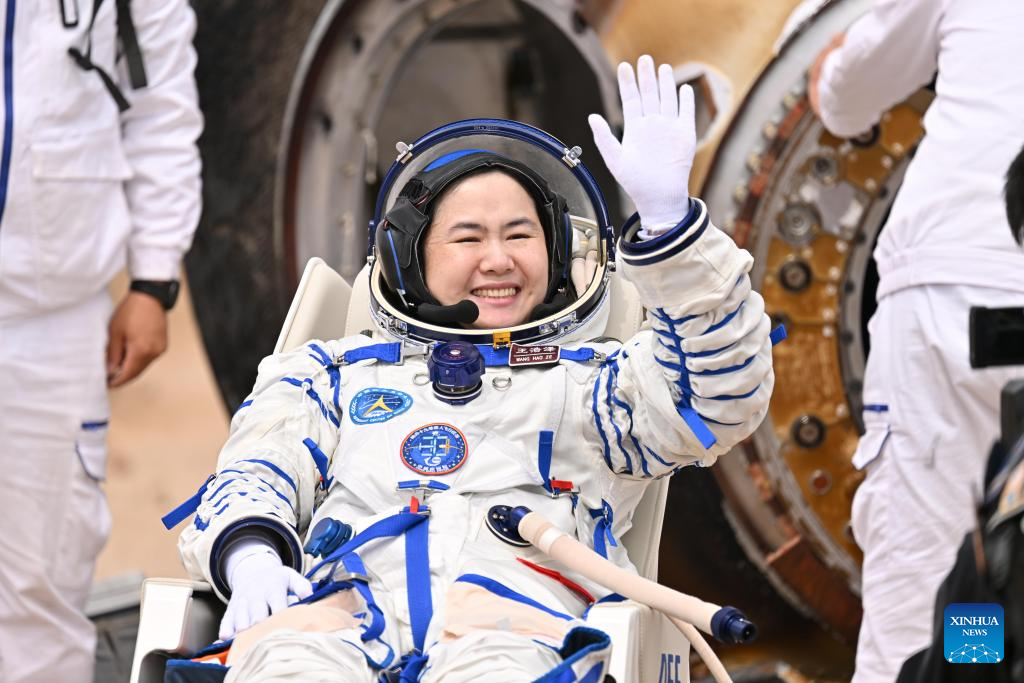
Wang is China's first female spaceflight engineer to enter the space station.
"It feels wonderful to be home, to feel the solid ground beneath my feet once again," said Wang. "I am now confident and capable of taking on even more challenging tasks in the future."
ALSO READ: Chinese female astronaut sends International Women's Day greetings from space
In the following hours after the return, ground recovery personnel from the Jiuquan Satellite Launch Center, the homeport for all of China's manned spaceflights, will conduct safety checks outside the capsule, before opening the hatch of the bell-shaped vehicle and examining the astronauts' health condition.
The Shenzhou XIX crew members will then be helped out of the capsule and sent for medical examination.
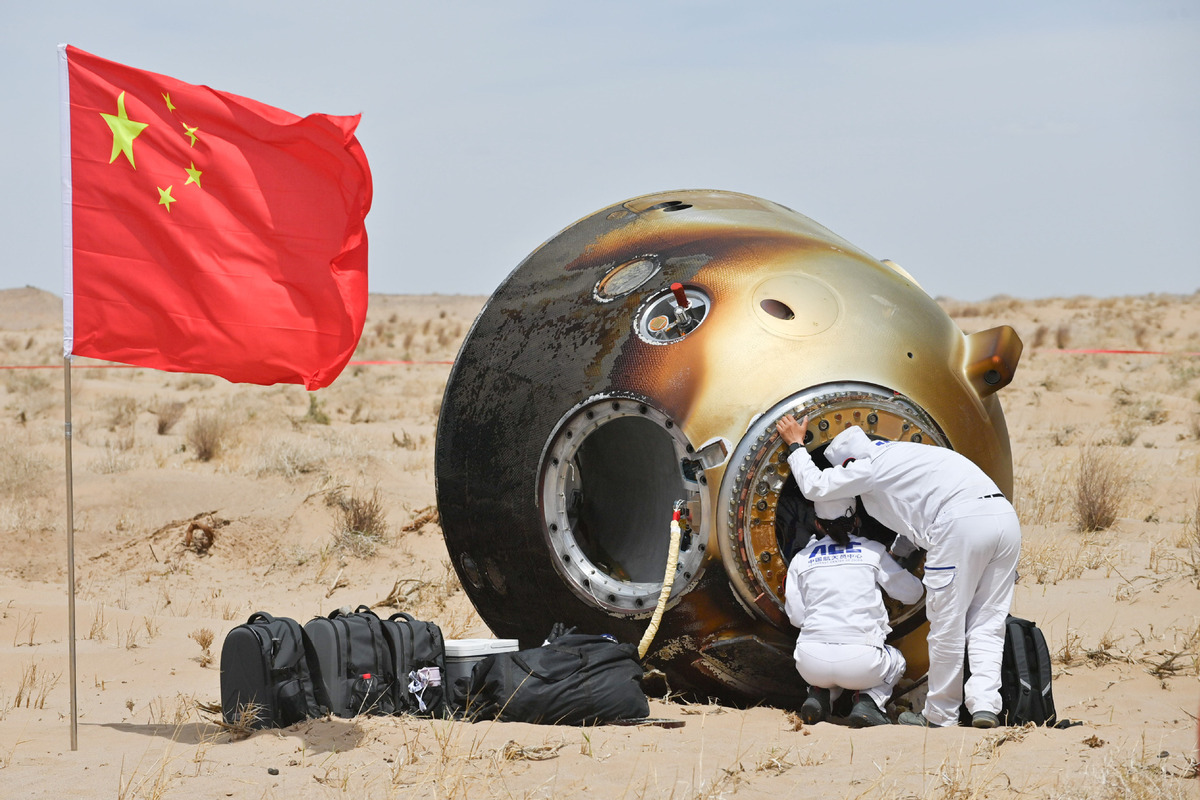
After completion of all the mandatory procedures at the landing site, the crew members will be flown back to Beijing to undergo a six-month quarantine and recuperation program, which is a standard procedure for Chinese astronauts returning from space.
The Shenzhou XIX spacecraft, launched in October 2024, departed from the Tiangong space station around 4 am on Wednesday. After undocking from Tiangong, the spacecraft executed a fast return mode, said Mao Yongjun, an expert from the Jiuquan Satellite Launch Center. The vessel flew into a return trajectory and gradually re-entered the Earth's atmosphere.
This return mission featured two technological improvements. Helicopters and search vehicles were equipped with BDS-3 terminals, thus enhancing positioning accuracy and efficiency for ground recovery, Mao said.
According to Mao, a laser meteorological radar was installed near the landing site to obtain detailed wind field data, boosting forecast accuracy from kilometers to within hundreds of meters.
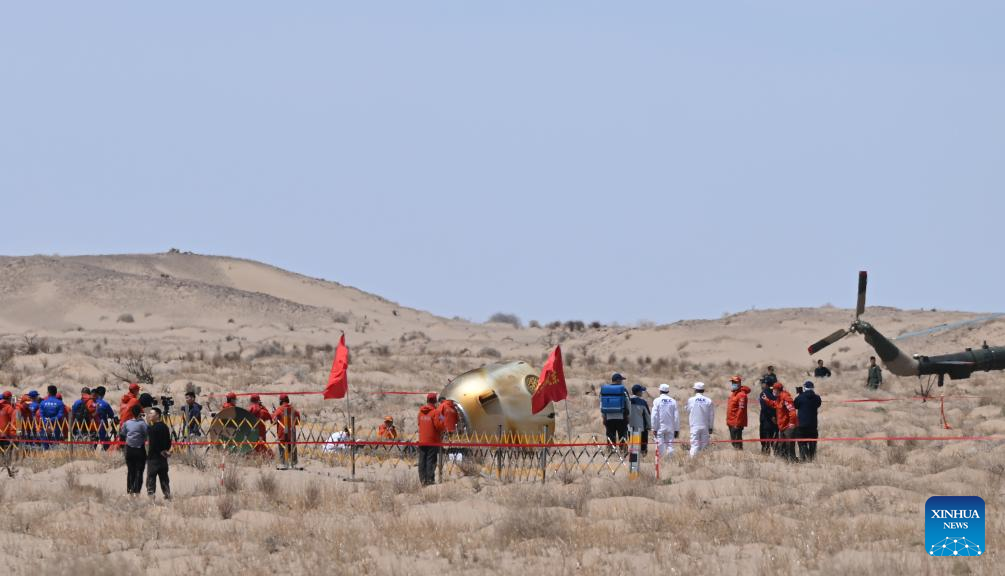
The CMSA said that prior to the separation from the space station, the Shenzhou XIX crew, with the assistance of the ground staff, completed various tasks such as setting the status of the space station combination, processing and transmitting the experimental data, and transferring remaining supplies.
Before setting out on their return trip, Cai's team handed over their work to a new crew, transmitted scientific experimental data back to Earth and sorted and transferred materials between the station and their spaceship.
READ MORE: Shenzhou XIX crew completes handover, returning to Earth on Tuesday
In the next six months, the Tiangong station will be manned by the Shenzhou XX trio, headed by Senior Colonel Chen Dong, who arrived at the colossal flying outpost early on Friday morning.
With Xinhua inputs


